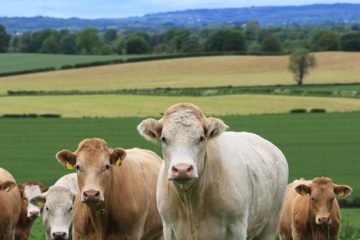According to Animal Health Ireland (AHI), a total of 638 herd owners registered to take part in Phase One of the Irish Johne’s Control Programme (IJCP) within the first six months.
The figure represents a milestone for the IJCP as the target of reaching 500 herd owners greatly exceeded expectations.
Furthermore, 370 herd owners have expressed interest in participating in Phase Two of the IJCP which is set to begin later this year.
Data compiled by AHI shows that 86 herds have already completed a whole herd test in the period November 2017 – January 2018, and a further 271 herd owners have already commenced whole herd testing using either milk or blood samples during the first phase of the programme.
AHI wish to remind herd owners who are testing using milk samples that two tests, at least 90 days apart, are required with the first seven days of lactation and peak milk production to be avoided.
Where milk samples are not available or not possible, a single blood sample from those animals is necessary.
All herd owners must have every animal tested that is over the age of two years on the date of the first sampling, including bulls, and should discuss the timing of testing with their approved veterinary practitioner.
The Irish Johne’s Control Programme focusses on:
- Individual herd risk assessments undertaken by approved veterinary practitioners (AVP), and the development of customised management plans known as VRAMPs.
- Regular whole herd screening tests using individual ELISA tests, contributing to the development of a herd assurance score for JD. There will be two different pathways for herds to build assurance; one for herds continuing to test negative and another for herds identified as infected.
- Communication and awareness activities.
Earlier in the year, Farm Safely spoke to Lorna Citer, Johne’s Disease Programme Manager of AHI. To find out more about the programme and how JD affects ruminant species you can do so by visiting the following link.



